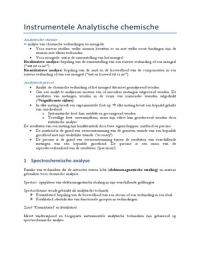EUROPEAN ENTREPRISE POLICY
SAM STROO
PROF R. AERNOUDT
, 2
INTRODUCTION
What do you have to know?
Course notes and all slides
Paper: scale-up gap
Course-book: 'Entrepreneurship, A way of life' (all chapters except for Chapter 5: p. 59 - 86)
INTRO: ENTERPRISE AND ENTERPRENEURSHIP
Entrepreneurship = turning an idea into an action, passion and do what you like to do and do it good
= not only about enterprises, but also students are entrepreneurs
Policy = what you do about a problem and how you do it. Setting rules
Supply & demand: price is set by the market:
INVISIBLE HAND (A. Smith): market mechanism when S&D meet.
For example: the policy fixes the minerval.
- Education = public good
- Waarom niet op privé markt? → privatiseren doet de prijs stijgen.
1 S T QUESTION: DOES THE MARKET WORK?
No? → market failure → where does it fail? What is the objective? → set rules
- It’s about pure economic impact
- The government who was the pilote became the regulator
- For example:
o Safety
o Fixed prices of bread set up by the government between €2 - €2.50
o Fixed prices of books in France
➔ Otherwise, the market doesn’t work
2 ND QUESTION: CAN THE GOVERNMENT MAKE THE MARKET WORK?
- If we don’t have public television there won’t be any news
- The government has to regulate
3TH QUESTION: IF THE GOVERNMENT CAN’T MAKE THE MARKET WORK, THE
GOVERNMENT SHOULD TAKE THE MARKET OVER
- Planes should be public
- If army was private, the market would fail. Therefore the government does it itself and the
army becomes a public good.
, 3
ENTREPRENEURSHIP: A WAY OF LIFE
CHAPTER 1: ENTERPRISE POLICY: FOUR OBJECTIVES
RATIONALE AND OBJECTIVE OF ENTERPRISE POLICY
“Small firms create more jobs than large firms (elephants). Mice, and especially gazelles, are more
important for the maintenance and the creation of employment than elephants” (David BIRCH, 1987)
Having enterprises is not an objective itself, but a tool to achieve other political and economic
objectives.
Market failure means that we don’t have enough enterprises, jobs, welfare, services, …
Mices and gazelles are more important than elephants because they have 80% of the job
creations
Be friendly with elephants (Phillips, Siemens, GM) and make them stay but focus on mice (start-
ups) and gazelles. Elephants don’t create new jobs, but are important to maintain.
“The EU has a problem in start-ups but even a bigger problem in scale-ups “
Many enterprises are not utilising their growth potential → a lot of potential in terms of job
creation remains untapped. The basic strategy of enterprises is to survive or to consolidate.
Main threats to survival and development: finding qualified staff and obtaining accurate
financing.
Bankruptcy and delocalisation leads to job destruction.
The future of SME’s: Are SME’s a necessary condition for the sustainable social-economical
development of the new neighbors of the enlarged EU
ENTERPRISE POLICY: WHAT? THE FOUR OBJECTIVES OF ENTERPRISE POLICY
Policy: to do something if the invisible hand fails
1st step: Identify that the market fails (show that market fails)
2nd step: Make market work (e.g. maximum price)
3rd step: Government/ Public sector takes over
QUANTIFIABLE OBJECTIVES
+ More start-ups and more growers
- Less bankcruptcy, avoid delocalisation
OBJECTIVES POLICY
to create more enterprises Start-up policy
to release their growth potential Growth enablers policy
gazelles
Prevent bankruptcy Bankruptcy and second chance policy
Avoid delocalisation Retention policy
, 4
LIMITS: PRINCIPLES OF OPERATIONS ARE RELEVANT:
The best way to understand the European Union’s role is to start identifying its limits.
1. PRIVATE SECTOR’S RESPONSIBILITY: Priority should be given to the functioning of the market.
(Government needs to make it work)
o Public involvement should in no way be a substitute for the private sector, nor should it
provoke any kind of cannibalism
o If the market fails, government should try to make the market work, based on the underlying
philosophy that ‘it is not because the market fails, that government does better’.
o Only government of Europe should take over if the market fails
2. SUBSIDIARITY: ondergeschiktheid: Market doesn’t work, European enterprise policy has to be
developed and implemented on an as low as possible level (What can be done in an efficient way at a
lower regional level should not be done at European level)
Close collaboration with Member States: what can be done in an efficient way at lower regional
level should not be done at European level
Each policy should be implemented at the lowest level possible if the condition still be efficient.
Bv schooldiploma’s moeten op een zo laag mogelijk niveau geregeld worden (deelstatelijk
niveau) maar moeten op alle niveaus in heel de wereld toch gelijk zijn.
3. UNANIMITY IN DECISION MAKING: In most of the fields relevant to enterprise policy, unanimity was
the common rule. This often made it very hard to make decisions: all countries should agree (council
and European parliament co-decision needed)
=> This set of principles leaves limited scope (beperkte mogelijkheden) for enterprise policy. The
objectives of the enterprise policy at European level are two-folded
METHOD AND OBJECTIVES
The objectives of the enterprise policy at European level are twofold:
Improve environment: fiscal, financial, administrative: create a better administrative, fiscal and
financial environment for enterprises: make it attractive; Administrative: minimum salary,
maximum hours of work.
Increase competitiveness, the Europeanization and the internationalisation of enterprises:
make better use of internal market
In order to achieve its objectives within the limits mentioned, the Commission relies on different tools,
which can roughly be summarised in four categories:
1. Communications, recommendations and directives of the Member states
2. Exchange of experience, best practices and benchmarking exercises
3. Pilot schemes, which aim to have demonstrative affect
4. Direct financing schemes
SAM STROO
PROF R. AERNOUDT
, 2
INTRODUCTION
What do you have to know?
Course notes and all slides
Paper: scale-up gap
Course-book: 'Entrepreneurship, A way of life' (all chapters except for Chapter 5: p. 59 - 86)
INTRO: ENTERPRISE AND ENTERPRENEURSHIP
Entrepreneurship = turning an idea into an action, passion and do what you like to do and do it good
= not only about enterprises, but also students are entrepreneurs
Policy = what you do about a problem and how you do it. Setting rules
Supply & demand: price is set by the market:
INVISIBLE HAND (A. Smith): market mechanism when S&D meet.
For example: the policy fixes the minerval.
- Education = public good
- Waarom niet op privé markt? → privatiseren doet de prijs stijgen.
1 S T QUESTION: DOES THE MARKET WORK?
No? → market failure → where does it fail? What is the objective? → set rules
- It’s about pure economic impact
- The government who was the pilote became the regulator
- For example:
o Safety
o Fixed prices of bread set up by the government between €2 - €2.50
o Fixed prices of books in France
➔ Otherwise, the market doesn’t work
2 ND QUESTION: CAN THE GOVERNMENT MAKE THE MARKET WORK?
- If we don’t have public television there won’t be any news
- The government has to regulate
3TH QUESTION: IF THE GOVERNMENT CAN’T MAKE THE MARKET WORK, THE
GOVERNMENT SHOULD TAKE THE MARKET OVER
- Planes should be public
- If army was private, the market would fail. Therefore the government does it itself and the
army becomes a public good.
, 3
ENTREPRENEURSHIP: A WAY OF LIFE
CHAPTER 1: ENTERPRISE POLICY: FOUR OBJECTIVES
RATIONALE AND OBJECTIVE OF ENTERPRISE POLICY
“Small firms create more jobs than large firms (elephants). Mice, and especially gazelles, are more
important for the maintenance and the creation of employment than elephants” (David BIRCH, 1987)
Having enterprises is not an objective itself, but a tool to achieve other political and economic
objectives.
Market failure means that we don’t have enough enterprises, jobs, welfare, services, …
Mices and gazelles are more important than elephants because they have 80% of the job
creations
Be friendly with elephants (Phillips, Siemens, GM) and make them stay but focus on mice (start-
ups) and gazelles. Elephants don’t create new jobs, but are important to maintain.
“The EU has a problem in start-ups but even a bigger problem in scale-ups “
Many enterprises are not utilising their growth potential → a lot of potential in terms of job
creation remains untapped. The basic strategy of enterprises is to survive or to consolidate.
Main threats to survival and development: finding qualified staff and obtaining accurate
financing.
Bankruptcy and delocalisation leads to job destruction.
The future of SME’s: Are SME’s a necessary condition for the sustainable social-economical
development of the new neighbors of the enlarged EU
ENTERPRISE POLICY: WHAT? THE FOUR OBJECTIVES OF ENTERPRISE POLICY
Policy: to do something if the invisible hand fails
1st step: Identify that the market fails (show that market fails)
2nd step: Make market work (e.g. maximum price)
3rd step: Government/ Public sector takes over
QUANTIFIABLE OBJECTIVES
+ More start-ups and more growers
- Less bankcruptcy, avoid delocalisation
OBJECTIVES POLICY
to create more enterprises Start-up policy
to release their growth potential Growth enablers policy
gazelles
Prevent bankruptcy Bankruptcy and second chance policy
Avoid delocalisation Retention policy
, 4
LIMITS: PRINCIPLES OF OPERATIONS ARE RELEVANT:
The best way to understand the European Union’s role is to start identifying its limits.
1. PRIVATE SECTOR’S RESPONSIBILITY: Priority should be given to the functioning of the market.
(Government needs to make it work)
o Public involvement should in no way be a substitute for the private sector, nor should it
provoke any kind of cannibalism
o If the market fails, government should try to make the market work, based on the underlying
philosophy that ‘it is not because the market fails, that government does better’.
o Only government of Europe should take over if the market fails
2. SUBSIDIARITY: ondergeschiktheid: Market doesn’t work, European enterprise policy has to be
developed and implemented on an as low as possible level (What can be done in an efficient way at a
lower regional level should not be done at European level)
Close collaboration with Member States: what can be done in an efficient way at lower regional
level should not be done at European level
Each policy should be implemented at the lowest level possible if the condition still be efficient.
Bv schooldiploma’s moeten op een zo laag mogelijk niveau geregeld worden (deelstatelijk
niveau) maar moeten op alle niveaus in heel de wereld toch gelijk zijn.
3. UNANIMITY IN DECISION MAKING: In most of the fields relevant to enterprise policy, unanimity was
the common rule. This often made it very hard to make decisions: all countries should agree (council
and European parliament co-decision needed)
=> This set of principles leaves limited scope (beperkte mogelijkheden) for enterprise policy. The
objectives of the enterprise policy at European level are two-folded
METHOD AND OBJECTIVES
The objectives of the enterprise policy at European level are twofold:
Improve environment: fiscal, financial, administrative: create a better administrative, fiscal and
financial environment for enterprises: make it attractive; Administrative: minimum salary,
maximum hours of work.
Increase competitiveness, the Europeanization and the internationalisation of enterprises:
make better use of internal market
In order to achieve its objectives within the limits mentioned, the Commission relies on different tools,
which can roughly be summarised in four categories:
1. Communications, recommendations and directives of the Member states
2. Exchange of experience, best practices and benchmarking exercises
3. Pilot schemes, which aim to have demonstrative affect
4. Direct financing schemes










